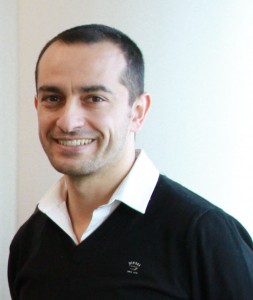Dr Shukry Habib

King's College London
 United Kingdom
United Kingdomshukry.habib@kcl.ac.uk
Research Interests
Stem cells are one of the fundamental underpinnings of tissue biology. They allow myriad tissues to be replenished by fresh cells throughout life. To preserve the regenerative capacity of the tissue, it is essential to maintain the number of stem cells. One mechanism that balances both tasks is asymmetric cell division (ACD). In ACD, each stem cell divides to generate one daughter with a stem-cell fate (self-renewal) and one daughter that differentiates.
Wnt signals are key proteins that regulate stem cells maintenance. In vivo, Wnt proteins are often secreted locally and presented to only one side of the responsive cell. Our lab has recently succeeded in covalently immobilising biologically active Wnt proteins to beads, thus revolutionising the process of specifically targeting Wnt proteins to individual cells and tissues. By using this novel tool and advanced live imaging, we showed that Wnt-beads can induce oriented ACD of embryonic stem cells (ESCs). Accordingly, ACD produces one Wnt-proximal ESC and one Wnt-distal epiblast-like stem cell (for more details see Habib et al 2013 Science Mar 22;339(6126):1445-8 and visit our website: www.habiblab.org).
Preliminary data from our lab show that localised Wnt signals regulate the orientation of the primary cilium. We currently dissect the inheritance of the primary cilia and its the role in Wnt-mediated ACD. To that end we apply principles from biochemistry, and stem cell biology in conjunction with advanced imaging techniques to further probe this biological phenomenon.
Key publication:
A localized Wnt signal orients asymmetric stem cell division in vitro. Habib SJ, Chen BC, Tsai FC, Anastassiadis K, Meyer T, Betzig E, Nusse R. Science. 2013 Mar 22;339(6126):1445-8. doi: 10.1126/science.1231077. Erratum in: Science. 2013 May 24;340(6135):924.
